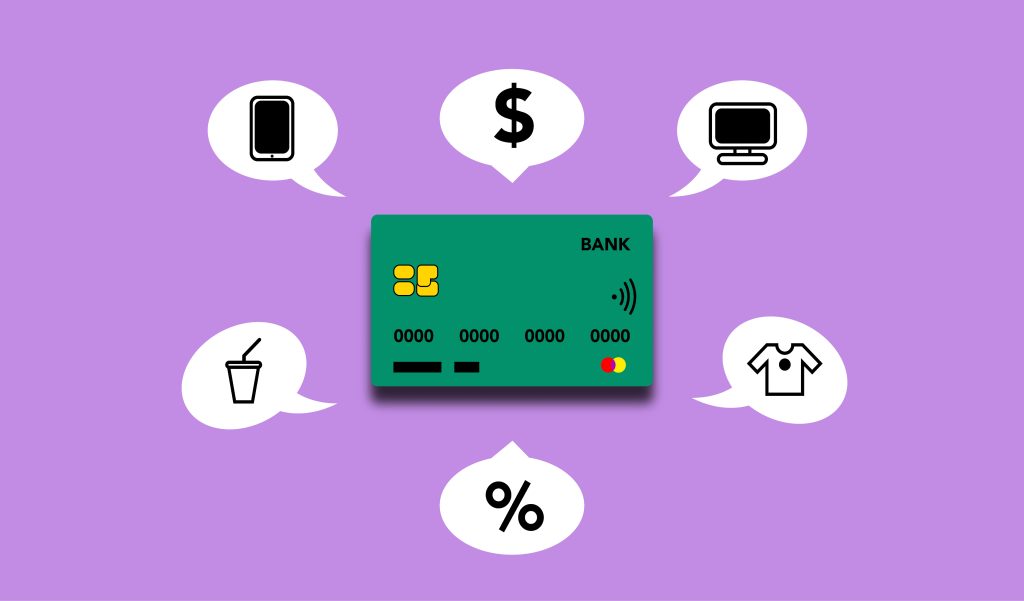For many credit card holders, the allure of credit card rewards can be irresistible. The promise of cashback, points, or other enticing incentives can sometimes lead individuals to focus solely on accumulating these rewards without considering the potential consequences for their credit scores.
To harness the benefits of credit card rewards without harming your credit score, it’s essential to adopt responsible spending habits.
The key to achieving this balance lies in several strategies:
1. Responsible Payment Habits: One of the fundamental principles is to pay your credit card balance in full each month. Automatic payments can help ensure you never miss a due date, keeping your credit in good standing. Moreover, maintaining a low credit utilization ratio is crucial for a positive credit score.
2. Managing the Number of Cards: It’s wise to be cautious when opening new credit cards. To avoid overspending and make it easier to track your expenses, consider holding only a few credit cards at a time. This approach can help prevent overspending, which may have adverse effects on your credit score.
3. Monitoring Expenses: To avoid financial pitfalls, keep a close watch on your spending. Tracking your expenditures on each card can help you steer clear of overspending and falling into debt. Responsible usage of credit card rewards can bring the benefits of rewards programs to your financial life without jeopardizing your credit score.
Benefits: Credit Card Rewards and Your Credit Score
Credit card rewards programs can have several positive impacts on your credit score:
Encouraging Responsible Credit Card Usage: By rewarding cardholders who make regular, on-time payments and maintain low balances, credit card rewards programs promote responsible credit card usage. They incentivize consumers to pay off their monthly balances rather than carrying debt, helping to build a positive credit history over time.
Incentivizing Timely Payments: Rewards programs can motivate cardholders to make payments on time or even ahead of schedule by offering bonuses for doing so. Timely payments not only prevent late fees and penalties but also enhance your credit history, a significant factor in credit score determination.
Lengthening Credit History Through Long-Term Usage: Long-term usage of credit cards to earn rewards can help extend your credit history. A longer credit history provides lenders with more information to assess your creditworthiness. Consistently making on-time payments demonstrates your responsible credit behavior, further boosting your credit score. Keeping an older credit card open, even if it’s not actively used, can also improve your credit history.
Risks: Credit Card Rewards and Your Credit Score
While credit card rewards can offer many advantages, they also present certain risks:
The Temptation to Overspend: The lure of rewards can tempt cardholders to overspend to earn more points or cashback. This behavior can lead to accumulating debt, which, in turn, negatively impacts your credit score. Overspending can result in missed payments, further harming your credit.
High Annual Fees and Interest Rates: Credit card rewards programs often come with high annual fees and interest rates, making it easier for cardholders to accrue debt. The high interest rates can quickly accumulate, making it difficult for cardholders to pay off their balances and ultimately causing missed payments and credit score decreases.
Annual fees associated with these credit cards can add up quickly, offsetting the rewards earned and causing some cardholders to question the value.
Negative Impact of Opening Multiple Rewards Credit
Cards: Opening several rewards credit cards can temporarily lower your credit score each time you apply for a new card, as it increases your overall credit utilization ratio. Managing multiple credit cards can also make financial management more challenging, potentially leading to missed payments and decreased credit scores. Moreover, opening multiple credit cards can hinder your ability to qualify for future loans or credit products.
Overlooking Credit Utilization Ratio: The importance of your credit utilization ratio, which compares your credit usage to your total credit limit, is often underestimated. Spending more to earn rewards can increase this ratio, potentially lowering your credit score. Maintaining a credit utilization ratio below 30% is crucial for a healthy credit score. Carrying a balance on rewards credit cards can lead to high-interest charges, further negatively impacting your credit score.
Tips for Maximizing Credit Card Rewards Without
Harming Your Credit Score
Here are some strategies to help you make the most of credit card rewards while preserving your credit score:
Choose the Right Rewards Program: Opt for a rewards program that aligns with your lifestyle and spending habits. Whether you frequently travel, shop at specific stores, or dine out, selecting a program tailored to your needs will help you maximize rewards without straying from your financial routine.
Manage Your Credit Utilization Ratio: Ensure your balance remains below 30% of your credit limit. Paying off your balance in full each month is essential to avoid accruing interest charges. Make purchases within your means and avoid relying on your credit card to cover daily expenses.
Maintain a Consistent Payment History: Pay your balance on time and in full every month to avoid late fees, and interest charges, and enhance your payment history. This consistent practice is instrumental in credit score improvement.
Be Cautious When Opening New Credit Cards: Limit credit card applications to those that offer the most favorable rewards and benefits matching your financial goals. Applying for new cards should be a selective and well-considered process.
Regularly Monitor Your Credit Score: Regularly reviewing your credit score and credit report ensures that your credit card rewards strategy isn’t detrimental. Monitoring helps you detect and address errors or fraudulent activities that could negatively impact your credit score.
It also enables you to track your progress toward maintaining a healthy credit score, which is crucial for obtaining the best credit card rewards and other benefits.
Takeaway
By striking the right balance between credit card rewards and responsible credit card management, you can enjoy the advantages of rewards programs without compromising your credit score.




